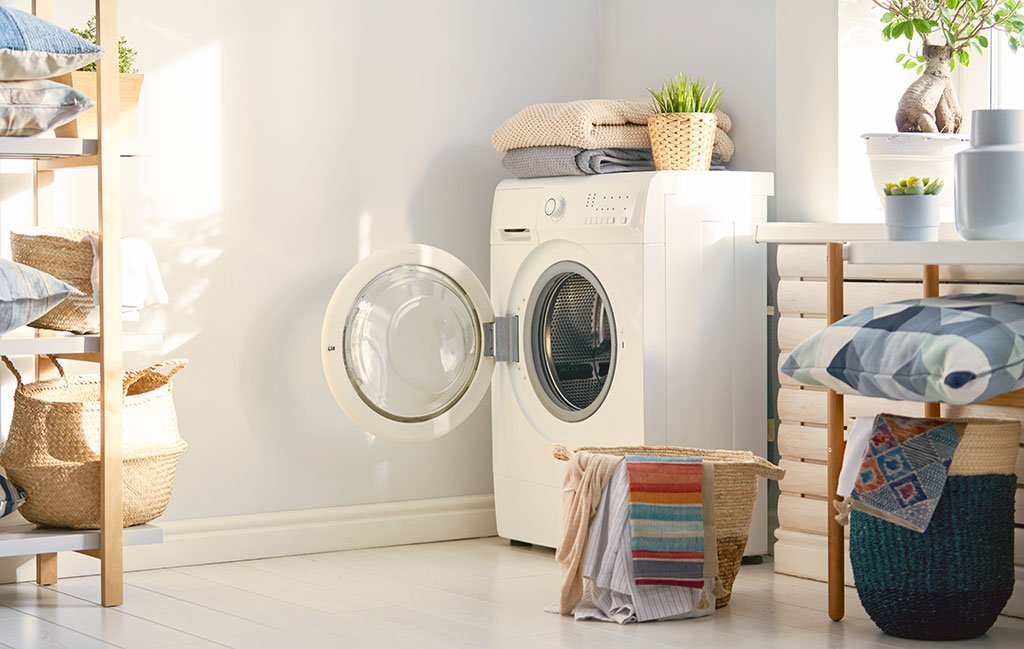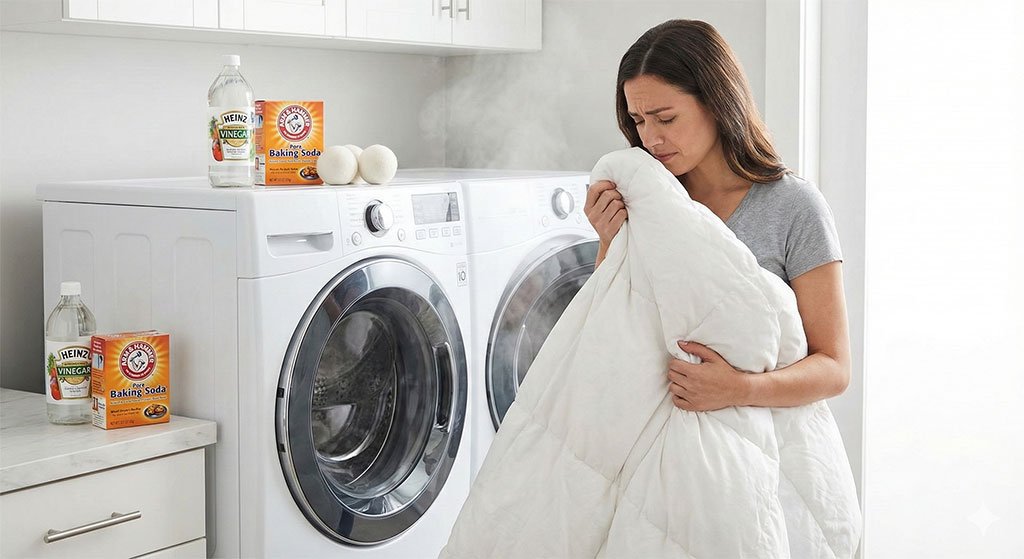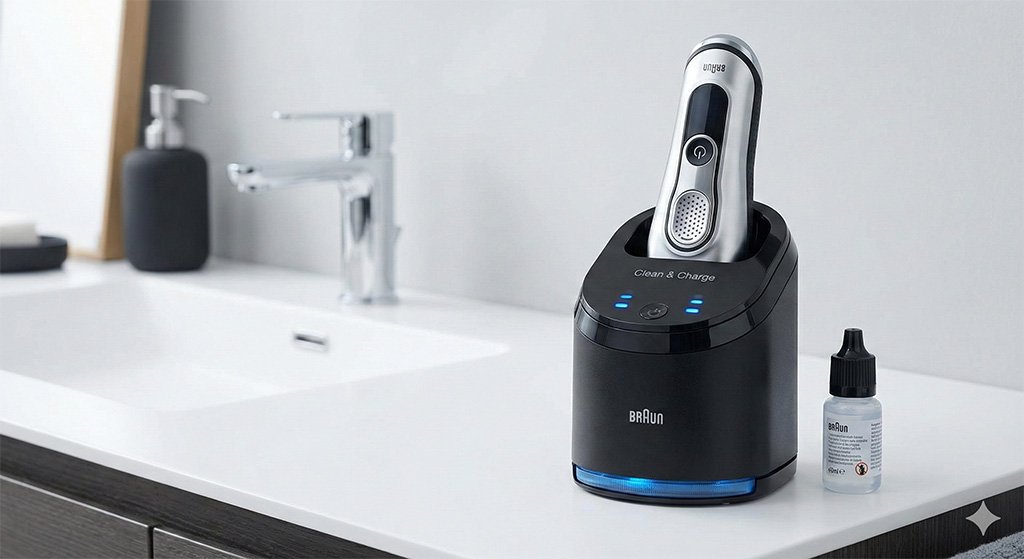Fully automatic washing machines are designed to make doing laundry easier and more convenient. They come with a variety of features that allow you to customize your wash cycle and program your machine to do the laundry while you focus on other things. However, despite their convenience, these machines have pros and cons that consumers should consider before purchasing.
Fully automatic washing machines can be expensive and offer limited control over water usage. They are also more complex than semi-automatic machines, which can make them more difficult and expensive to repair if something goes wrong. In addition, they require electricity to operate, which can be problematic if you experience power outages in your area.
In this article, we will take a closer look at the disadvantages of fully automatic washing machines to help you make an informed decision about whether it is the right choice for your laundry needs.

Table of contents
Disadvantages of Fully Automatic Washing Machines
Fully automatic washing machines are convenient, but they have several drawbacks. They tend to be expensive, offer limited control over water usage, and can be complex and expensive to repair. They require electricity to operate, which can be a problem during power outages, and have a higher potential for mechanical failure than semi-automatic machines. Let’s check in detail:
High Cost
Fully automatic washing machines tend to be more expensive than semi-automatic machines. This is because they come with advanced features like digital controls, multiple wash programs, and automatic water level sensors. While these features make the machine more convenient to use, they also add to the cost.
The high cost of fully automatic washer can be a deterrent for some consumers. They may choose to stick with a semi-automatic machine or opt for a cheaper model that offers fewer features. However, it’s important to note that fully automatic machines can save you time and effort in the long run, as they do not require you to manually switch between wash cycles or monitor water levels.
If you’re considering purchasing a fully automatic washing machine, it’s important to compare prices and features to find the best value for your money. You may also want to consider financing options or wait for sales or discounts to get a better deal. Ultimately, the high cost of fully automatic washing machines may be worth it if you value convenience and efficiency in your laundry routine.
Limited Control over Water Usage
One of the major drawbacks of fully automatic washer is that they offer limited control over water usage. These machines come with automatic sensors that determine the amount of water needed for each wash cycle, based on the weight of the clothes and the selected program. While this may seem like a convenient feature, it can actually result in excessive water usage.
If you’re concerned about water conservation, a fully automatic washing machine may not be the best choice for you. You may want to consider a semi-automatic machine, which allows you to manually control the amount of water used for each wash cycle. Alternatively, you can opt for a high-efficiency fully automatic machine that uses less water than traditional models.
However, it’s worth noting that modern fully automatic washing machines are designed to be energy and water-efficient. They often come with features like load sensors and eco programs that can help minimize water usage.
Additionally, some models allow you to customize the water level or add an extra rinse cycle to ensure that your clothes are thoroughly clean. Ultimately, it’s up to you to decide whether the limited control over water usage is a deal-breaker when it comes to choosing a washing machine.
Complexity In Usage
Another disadvantage is their complexity. While their advanced features can make washing clothes more convenient, they can also make the machines more complicated and difficult to use.
For example, some fully automatic washing machines come with complex electronic controls that may be confusing for some users. Additionally, the numerous washing programs and cycles may be overwhelming, and users may struggle to understand which cycle is appropriate for their clothing.
The complexity of fully automatic washing machines may also make them more prone to breakdowns and malfunctions. This is because the more complex a machine is, the more opportunities there are for something to go wrong.
To address this issue, some manufacturers have made efforts to simplify their fully automatic washing machines. They may include user-friendly controls, streamlined washing programs, and easy-to-understand instructions. However, simpler machines may not offer the same level of advanced features and may not be suitable for all users.
Requires More Electricity
Full automatic washer requires more electricity to operate. This can be a problem if you live in an area with frequent power outages or if you want to conserve energy and reduce your electricity bills.
If you’re concerned about power outages, you may want to consider a semi-automatic washing machine or invest in a backup power supply like a generator or an uninterrupted power supply (UPS). Additionally, you can try to minimize your electricity usage by selecting eco programs or washing your clothes in cold water.
On the other hand, if you prioritize convenience and efficiency in your laundry routine, a fully automatic washing machine may be worth the electricity consumption. These machines are designed to be energy-efficient, and some models come with energy-saving features like delay start and quick wash programs.
Additionally, modern fully automatic washing machines are typically designed to consume less energy than their older counterparts, so you can save money on your electricity bills in the long run.
Potential for Mechanical Failure
Like any complex machine, fully automatic machines have a higher potential for mechanical failure than simpler machines like semi-automatic models. This is because they have more moving parts, electronic components, and sophisticated mechanisms that can malfunction or break down over time.
The potential for mechanical failure can be a concern for some consumers, as repairs can be costly and time-consuming. It’s important to choose a reliable brand and model of fully automatic washing machine, and to follow the manufacturer’s instructions for proper use and maintenance. Regular cleaning and maintenance can help prevent mechanical issues and prolong the lifespan of your machine.
If you’re concerned about the potential for mechanical failure, you may want to consider purchasing an extended warranty or service plan. This can provide peace of mind and protect you from unexpected repair costs. Additionally, some fully automatic washing machines come with diagnostic features that can help identify potential issues before they become major problems.
FAQ
What is the common problem of automatic washing machine?
One common problem of automatic washing machines is that they can be prone to mechanical failure. This can be due to factors such as wear and tear, improper use, or poor maintenance.
Some of the most common issues that can arise include leaks, broken parts, and electronic malfunctions. However, regular cleaning and maintenance can help prevent these problems.
Which is better semi-automatic or fully automatic?
Whether a semi-automatic or fully automatic washing machine is better depends on personal preferences and needs. Semi-automatic machines tend to be more affordable and offer more control over water usage, but they also require more manual effort and may not offer as many advanced features.
Fully automatic machines, on the other hand, are more convenient and offer a wider range of washing programs and cycles, but they can be more expensive and may use more water and electricity.
What is the lifespan of automatic washing machine?
The lifespan of an automatic washing machine can vary depending on factors such as brand, model, usage, and maintenance. On average, a well-maintained automatic washing machine can last for around 10 to 13 years. However, some machines may need to be replaced sooner if they experience mechanical problems or if they are used frequently.
How do you maintain an automatic washing machine?
To maintain an automatic washing machine, it’s important to regularly clean the machine and its components, such as the drum and filters. This can help prevent the buildup of dirt and debris that can cause mechanical issues.
It’s also important to use the appropriate amount of detergent and to avoid overloading the machine, which can strain the motor and cause damage.
Additionally, it’s a good idea to schedule regular maintenance checks with a professional to identify and address any potential issues before they become serious.
Do automatic washers waste water?
Fully automatic washing machines may use more water than semi-automatic machines, especially if they have larger drum capacities or if they use certain washing programs.
However, some newer models are designed to be more water-efficient, using sensors and advanced features to optimize water usage. It’s important to choose a washing machine that meets your household needs while also being mindful of water usage and conservation.
Wrap Up
Fully automatic washing machines offer convenience and advanced features, but they also have several drawbacks. These include a high cost, limited control over water usage, requirement of electricity, and potential for mechanical failure.
It’s important to consider these factors before making a purchase and choose a reliable brand and model. Regular maintenance and cleaning can help prevent potential issues.
Ultimately, the most important thing is to ensure that your clothes are being cleaned effectively and efficiently and that your washing machine meets your household needs.




Leave a Reply